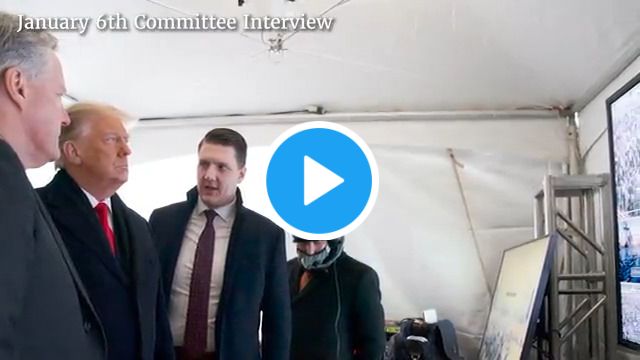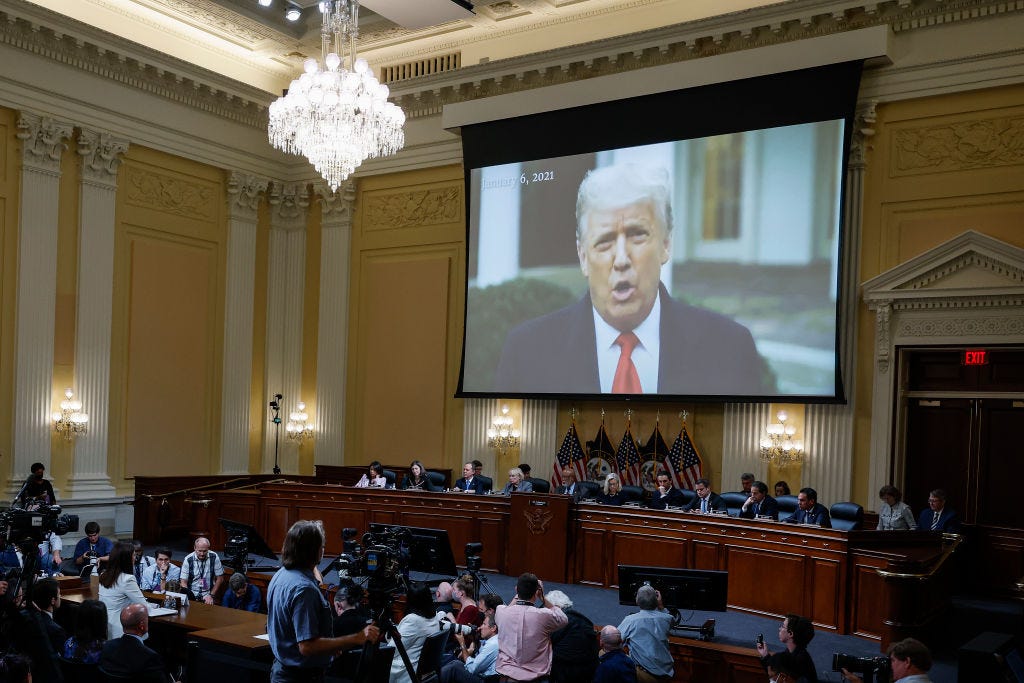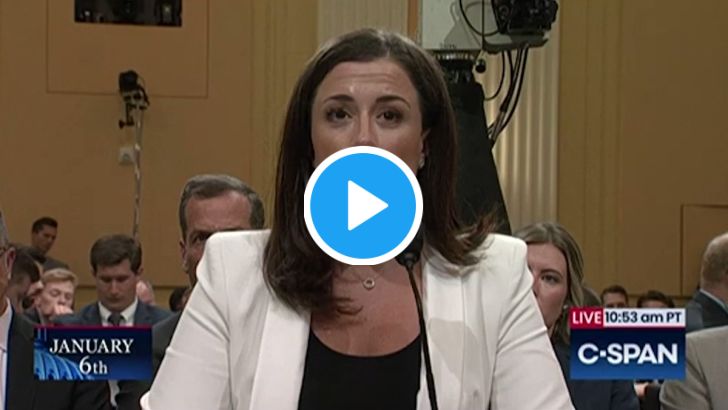Popular Information - Trump's criminal culpability
Monday morning, Popular Information reported that Match, the popular dating company that also owns Tinder, Hinge, and OkCupid, had recently donated over $100,000 to the Republican Attorneys General Association — a political group working to eliminate abortion rights nationwide. Monday afternoon, Popular Information's reporting was featured in the New York Times. On Tuesday, our reporting on corporate hypocrisy was picked up by The Guardian, Vox, and the New York Times, again. Popular Information is a three-person newsletter that can rattle the cages of powerful corporations. You can support this work — and help us do more of it — with a paid subscription. It's $50 per year or $6 per month. Popular Information is currently donating 50% of all revenue from new subscriptions to the Women’s Reproductive Rights Assistance Project, "the largest nationwide, independent, nonprofit abortion fund assisting patients in all 50 states." On Tuesday, Cassidy Hutchinson, a former aide to Trump Chief of Staff Mark Meadows, delivered extraordinary testimony to the House Select Committee about Trump's actions on January 6, 2021. Legal experts told Popular Information that Hutchinson's testimony meaningfully increases the chances that Trump could be criminally charged and convicted for his conduct. That is not to say successfully prosecuting Trump would be easy or that such charges are imminent. Under the law, much of what we know about Trump's conduct is presumptively protected political speech under the First Amendment. Overcoming that presumption requires evidence about Trump's intent that is typically not available. There is a reason why, in the history of the United States, no former president has ever been criminally charged. But Hutchinson's dramatic testimony suggests that prosecutors may be able to meet their burden of proof. Based on what we learned Tuesday, these are the criminal charges that are potentially applicable to Trump. Solicitation to commit a crime of violence (18 U.S. Code § 373)A person who "solicits, commands, induces, or otherwise endeavors to persuade" another person to commit to "engage in conduct constituting a felony" involving "use of physical force against property or against the person" violates federal law. Popular Information spoke with Renato Mariotti, a former federal prosecutor, and Matthew Miller, a former official at the Department of Justice. Both agree that this is the most likely criminal charge against Trump. The standard for convicting someone under this statue, however, is quite high. The Supreme Court case of Brandenburg v. Ohio found that, in many situations, speech advocating for illegal acts is protected under the First Amendment. Speech advocating violence can only constitute a crime if:
In Brandenburg, the Supreme Court found a KKK leader could not be convicted for a speech suggesting it is "possible that there might have to be some revengeance taken" if the government "continues to suppress the white, Caucasian race." While the KKK leader's conduct was repugnant, the broad protections the courts afford to political speech is a central component of American democracy. Trump's speech on January 6 had numerous violent elements. "We fight like hell," Trump said to the crowd on the Ellipse in Washington, DC. "And if you don't fight like hell, you're not going to have a country anymore." Trump also told the crowd that "we're going to walk down to the Capitol" and "demand that Congress do the right thing." He stressed that "you'll never take back our country with weakness. You have to show strength and you have to be strong." Trump never made it to the Capitol but the crowd followed his instructions and marched on the Capitol. Many of them committed acts of violence. It was always clear that Trump was morally responsible for the events of January 6, which were all based on Trump's lies about election fraud. But prior to Tuesday's testimony, under the Brandenberg standard, the known facts made it unlikely that Trump could be held legally responsible under the theory of inciting violence. Hutchinson's testimony changed things. She was with Trump and other aides backstage before the speech. Hutchinson said that Trump was very angry that the area set aside for the crowd was not full. Trump was told that the reason the area wasn't full was that many people in the mob were armed and did not want to go through the magnetometers that Trump's security team had set up on the perimeter. "I don’t F-ing care that they have weapons," Trump said, according to Hutchinson. "They’re not here to hurt me. Take the F-ing mags away. Let my people in. They can march to the Capitol from here."   So there is now evidence that Trump knew that many people in the crowd were armed and intended to hurt people. And that he directed to those people to march to the U.S. Capitol. That evidence makes it conceivable for prosecutors to prove that Trump's words were "directed at inciting or producing imminent lawless action" and "likely to incite or produce such action." In other words, Trump intended to incite the armed mob to violence. Trump's defenders dismissed Hutchinson's testimony as hearsay. But under Federal Rule of Evidence 801(d)(2), if Trump was charged, Hutchinson's testimony about what she heard Trump say would be a "statement… offered against an opposing party" and not hearsay. Trump's lawyers would likely point to the part of his speech where Trump tells the crowd to "peacefully and patriotically make your voices heard." But Trump's knowledge that the crowd was armed, along with the violent rhetoric he used throughout the speech, undermines his claim that those seven words constitute his true intent. Hutchinson also testified that Trump was adamant about joining the mob at the Capitol building. "I’m the ‘effing’ president, take me up to the Capitol now!," Trump allegedly said. At one point, according to Hutchinson, Trump grabbed the wheel of the presidential limousine and, when that was unsuccessful "lunged at a Secret Service agent in a rage." This, according to Mariotti, could also go toward proving Trump's intent. Trump did not intend to simply give a speech and go back to the White House and tweet. Trump was intent on going to the Capitol and joining the crowd, which he knew to be armed and dangerous. Hutchinson heard about Trump's conduct in the limousine through another aide, Tony Ornato, so that portion of her testimony is hearsay. But in a criminal trial, prosecutors could subpoena Ornato (or someone else in the limo) or seek to admit Hutchinson's testimony under an exception to the hearsay rules. Obstruction of Congress (18 U.S. Code § 1505)"Whoever corruptly, or by threats or force, or by any threatening letter or communication influences, obstructs, or impedes or endeavors to influence, obstruct, or impede the due and proper administration of" Congress, violates federal law. On January 6, a violent mob impeded Congress' efforts to certify the Electoral College vote. Whether or not Trump is criminally responsible for that hinges, in part, on whether he incited the violence. If Trump intentionally incited the violent mob, it is much easier to argue he was involved in the obstruction. Hutchinson's testimony that Trump knew the crowd was armed and that he intended to join them at the Capitol is again relevant. This charge is slightly harder to prove because, in addition to demonstrating that Trump incited them to violence, prosecutors would also have to prove that he intended for the violence to obstruct Congress' work. It's a substantial challenge but it's a case that is much easier to prove with Hutchinson's testimony. Other potential chargesOther potential charges against Trump include seditious conspiracy (18 U.S. Code § 2384) and conspiracy to defraud the United States (18 U.S. Code § 371). Conspiracy, however, requires corrupt intent. That means, according to Mariotti, that prosecutors would likely need to prove that Trump knew that his claims of election fraud were false but pursued actions to maintain his office anyway. There was evidence presented in earlier hearings that Trump was told by advisors that his theories of fraud were meritless. But whether Trump accepted what he was being told is another issue. Evidence of Trump's state of mind about the fraud claims could be provided by other witnesses but was beyond the scope of Hutchinson's testimony. |
Older messages
Ron Johnson lied
Tuesday, June 28, 2022
Text messages released by the January 6 Committee last week revealed that Senator Ron Johnson (R-WI) tried to deliver a list of fake electors directly to former Vice President Mike Pence. This was part
The hypocrisy of abortion as a corporate perk
Monday, June 27, 2022
In response to the Supreme Court's decision in Dobbs v. Jackson Women's Health, which invalidated the constitutional right to an abortion that was in place for almost 50 years, several dozen
Ron Johnson tried to subvert democracy. These corporations are backing his reelection.
Thursday, June 23, 2022
Senator Ron Johnson (R-WI) was directly involved in the last-ditch effort to subvert the 2020 presidential election, according to text messages released by the January 6 Committee. Just before former
UPDATE: Pepsi responds
Wednesday, June 22, 2022
Yesterday, Popular Information initially reported that Pepsi was one of several sponsors of the 2022 Texas Republican Party convention. The convention produced a party platform that described
Pepsi sponsored the 2022 Texas Republican Convention
Tuesday, June 21, 2022
The Texas Republican Party is one of the largest and most influential state parties in the nation. But it is also among the most radical. Successful candidates nominated by the Texas GOP have
You Might Also Like
☕ Great chains
Wednesday, January 15, 2025
Prologis looks to improve supply chain operations. January 15, 2025 View Online | Sign Up Retail Brew Presented By Bloomreach It's Wednesday, and we've been walking for miles inside the Javits
Pete Hegseth's confirmation hearing.
Wednesday, January 15, 2025
Hegseth's hearing had some fireworks, but he looks headed toward confirmation. Pete Hegseth's confirmation hearing. Hegseth's hearing had some fireworks, but he looks headed toward
Honourable Roulette
Wednesday, January 15, 2025
The Honourable Parts // The Story Of Russian Roulette Honourable Roulette By Kaamya Sharma • 15 Jan 2025 View in browser View in browser The Honourable Parts Spencer Wright | Scope Of Work | 6th
📬 No. 62 | What I learned about newsletters in 2024
Wednesday, January 15, 2025
“I love that I get the chance to ask questions and keep learning. Here are a few big takeaways.” ͏ ͏ ͏ ͏ ͏ ͏ ͏ ͏ ͏ ͏ ͏ ͏ ͏ ͏ ͏ ͏ ͏ ͏ ͏ ͏ ͏ ͏ ͏ ͏ ͏ ͏
⚡️ ‘Skeleton Crew’ Answers Its Biggest Mystery
Wednesday, January 15, 2025
Plus: There's no good way to adapt any more Neil Gaiman stories. Inverse Daily The twist in this Star Wars show was, that there was no twist. Lucasfilm TV Shows 'Skeleton Crew' Finally
I Tried All The New Eye-Shadow Sticks
Wednesday, January 15, 2025
And a couple classics. The Strategist Beauty Brief January 15, 2025 Every product is independently selected by editors. If you buy something through our links, New York may earn an affiliate commission
How To Stop Worrying And Learn To Love Lynn's National IQ Estimates
Wednesday, January 15, 2025
... ͏ ͏ ͏ ͏ ͏ ͏ ͏ ͏ ͏ ͏ ͏ ͏ ͏ ͏ ͏ ͏ ͏ ͏ ͏ ͏ ͏ ͏ ͏ ͏ ͏ ͏ ͏ ͏ ͏ ͏ ͏ ͏ ͏ ͏ ͏ ͏ ͏ ͏ ͏ ͏ ͏ ͏ ͏ ͏ ͏ ͏ ͏ ͏ ͏ ͏ ͏ ͏ ͏ ͏ ͏ ͏ ͏ ͏ ͏ ͏ ͏ ͏ ͏ ͏ ͏ ͏ ͏ ͏ ͏ ͏ ͏ ͏ ͏ ͏ ͏ ͏ ͏ ͏ ͏ ͏ ͏ ͏ ͏ ͏ ͏ ͏ ͏ ͏ ͏ ͏ ͏ ͏ ͏ ͏ ͏ ͏ ͏ ͏ ͏
☕ Olympic recycling
Wednesday, January 15, 2025
Reusing wi-fi equipment from the Paris games. January 15, 2025 View Online | Sign Up Tech Brew It's Wednesday. After the medals are awarded and the athletes go home, what happens to all the stuff
Ozempic has entered the chat
Wednesday, January 15, 2025
Plus: Hegseth's hearing, a huge religious rite, and confidence. January 15, 2025 View in browser Jolie Myers is the managing editor of the Vox Media Podcast Network. Her work often focuses on
How a major bank cheated its customers out of $2 billion, according to a new federal lawsuit
Wednesday, January 15, 2025
An explosive new lawsuit filed by the Consumer Financial Protection Bureau (CFPB) alleges that Capital One bank cheated its customers out of $2 billion. ͏ ͏ ͏ ͏ ͏ ͏ ͏ ͏ ͏ ͏ ͏ ͏ ͏ ͏ ͏ ͏ ͏ ͏ ͏ ͏ ͏ ͏ ͏ ͏




